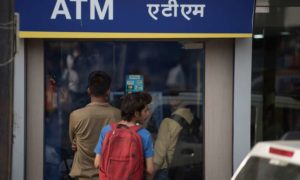With merely few days left for the Budget to be presented by the Finance Minister, expectations are on a all-time high. On the economic front, the government has a daunting task to take care of fiscal deficit, dipping GDP and reduced consumption levels
Considering the economic condition, the Finance Minister has to take significant measures to provide a much-needed boost to the economy focusing on growth in the demand-side of the economy, increased job opportunities and increase in consumer spending.
To give an impetus to the economy, some relief in terms of change in personal tax slabs may be on the government’s agenda. While a balanced approach seems to be more likely, the common man is expecting few tax sops that will boost their purchasing power and in turn will be beneficial for the economy.
Given the above expectation from personal tax, it remains to be seen what is the government’s plan in respect of corporate and indirect taxes. Considering the corporate tax rates are already slashed, there is a little hope for any further adjustment in the same. From an indirect tax perspective, one will look forward to Budget announcements on customs duty. There could also be some decisions around GST as well.
In the light of above, the broad Budget expectations are as below:
MORE ON BUDGET 2020:
Middle class back in focus (India Today)
Long-awaited FDI protection provision expected in Budget (Hindustan Times)
Our special coverage on latest Budget news, analysis and more
Personal tax
While companies got significant relief with reduced corporate tax rates, individuals are indeed waiting for similar cuts in personal income tax this year. Rationalisation of the slabs rates from current 0- 2.5 lakhs (nil tax), 2.5-5 lakhs (5 percent), 5-10 lakhs (20 percent) and above 10 lakhs (30 percent) to 0-5 lakhs (Nil tax), 5-10 lakhs (10 percent), 10-20 lakhs (20 percent) and above 20 lakhs (30 percent) is expected.
• This year’s Budget should look at increasing the limit of deduction under section 80C. This was last increased in the year 2014. With more investment avenues already coming under this section, the current limit of Rs 150,000 surely needs to be increased to Rs 250,000, so that individuals who generally exhaust the current limit by PF contribution, life insurance premium, repayment of housing loan etc. should also get an incentive to save more for the future.
• Another expectation is for a higher deduction for housing loan interest for self-occupied property which is currently restricted at Rs 2 lakhs. Also, set off of loss from house property against other heads of income is capped at Rs 2 lakhs. Investment in housing is a long-term investment decision and needs a boost to revive common man’s interest to invest again in this sector. This does merit raising of the limit of deduction for housing interest to Rs 3 lakhs for self-occupied property and the limit of set off loss from house property against other heads of income be also either raised to Rs 3 lakhs or removed altogether.
Corporate tax
- Abolishing Dividend Distribution Tax (DDT) which is presently levied on the companies declaring dividends and bringing back erstwhile regime of taxing dividends in the hands of shareholders. This is the most expected relief from Budget 2020. It will benefit the foreign investors/companies who can claim a credit of the taxes paid on dividend in India in their respective countries.(as per the relevant treaty provisions).
- Given that export growth has slowed down, the government may consider extending the sunset clause for commencement of activities as prescribed under section 10AA beyond 31 March, 2020. This will not only revive the Special Economic Zone (SEZ) investment ecosystem but will also result in improving current account deficit situation with more foreign exchange reserves.
- While the Central Board of Direct Taxes has done well to increase the monetary threshold for the revenue to litigate before the Tax Tribunal, High Court and Supreme Court, there are still large number of appeals pending across the appellate forums. Similar to “Sabka Vishwas” scheme, which was introduced under the GST law, a one-time dispute resolution scheme could be introduced under income tax too whereby taxpayers are given the option to settle their legacy disputes by paying an ad-hoc amount of outstanding tax demand. This will not only reduce the administrative time and cost involved from both sides but also speed up collection of taxes.
Indirect tax
- In order to support Make in India, exemption/reduction in customs duty on import of raw materials while levy of/ increase in duty on import of finished product is expected. Also, to promote manufacturing of electric vehicles in India,the Government may extend thecustom duty exemption on parts used in manufacturing of electric vehicle beyond April 2021.
It is quite evident that the above wish list may lead to pressure on the government in terms of revenue collections. Going by recent media reports, it seems government is already running short of its tax collections target for this year and their hands are strictly tightened, but that may not dampen their spirit in taking a few bold steps, which are must to boost consumption, generate more employment and bring the economy back on track. What finally happens, we will come to know only on 1 February. But growth, employment, boosting consumption and improving investor’s sentiments would be on government’s agenda in this year’s Budget.




































